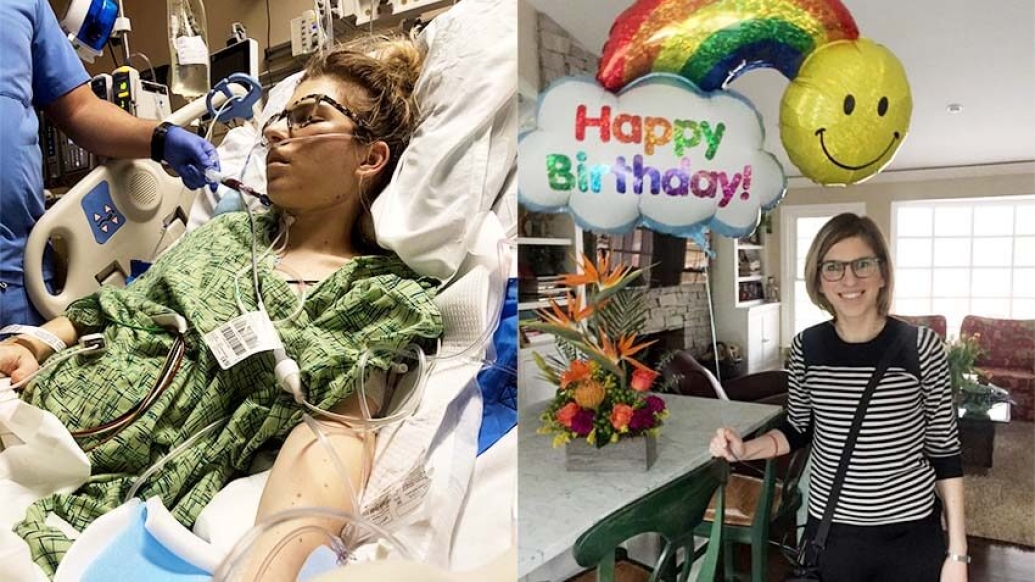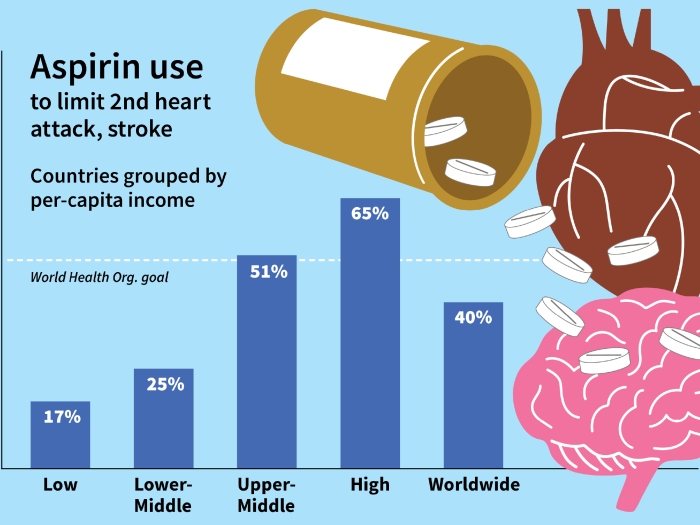After suffering a spontaneous coronary artery dissection, here’s what Morgan Drutchas wants other women to know.
12:40 PM
Author |

Last year, Morgan Drutchas became one of the approximately 6.5 million Americans living with heart failure. Her heart is no longer able to pump enough blood throughout her body.
But the cause of her condition — spontaneous coronary artery dissection, or SCAD — isn't typical. In fact, it often goes misdiagnosed by health care providers. Drutchas aims to change that, along with educating people about the very real toll heart failure can take.
While the most common cause of heart failure is coronary artery disease, which happens when plaque builds up in the arteries, other causes include high blood pressure, heart valve disease and diabetes as well as less common causes such as SCAD.
SCAD is a condition in which a tear, or dissection, occurs within the layers of one or more arteries that supply blood to the heart. The tear blocks blood flow to the heart muscle, resulting in a heart attack that often causes heart failure.
For Drutchas, SCAD triggered not one but two heart attacks that led to heart failure at age 35. But despite ongoing fatigue and the stress of living with the condition, she's not taking it lying down. She wants to spread her messages about heart failure and SCAD.
"Young women can suffer a heart attack due to SCAD, especially ages 35 to 50," she says. In fact, SCAD is the number one cause of heart attack in women under the age of 50 as well as in pregnant women and new mothers. "There remains a bias that younger, healthy women can't have a serious cardiac issue, which is why it's so important that women are aware of SCAD and can advocate for themselves."
An unexpected life-changer
Drutchas' story began January 30, 2019, when she experienced what first seemed to be indigestion while at work. With the pain worsening, her left arm going numb and a dramatic change from hot to cold in her body temperature, a call to Drutchas' primary doctor directed her to the emergency room of the nearest hospital to be evaluated. There, she was diagnosed with a heart attack, monitored overnight and discharged the next day.
Similar chest pain days later told her again something wasn't right. "I knew I had to get to a hospital," she says. Fortunately, a neighbor was able to get her there just in time.
Still, doctors didn't suspect a life-threatening condition until Drutchas' sister, a doctor, intervened. "She told them that even though I may look young and healthy, I had a heart attack three days ago and they needed to act fast," Drutchas says.
An EKG confirmed a serious second heart attack. "All of a sudden I was being rushed away to a cath lab," she says. "I was told later that they had never seen such a bad EKG in someone so young and otherwise healthy. My sister asked if my parents could come in to kiss me goodbye because my condition was so severe."
Drutchas recalls waking up in the ICU four days later, intubated and connected to countless monitors and machines. Days later, she learned about SCAD, which had caused an extensive tear in her coronary artery, requiring six overlapping stents. Then came a second shock. "I saw that 'heart failure' was written on the board in my room and thought it must be a mistake."
An ongoing journey
After spending three weeks in ICU on IV medications and a cardiac pump, she was discharged and moved back home with her parents. "I needed to be cared for and couldn't live independently because of my heart failure," she says.
Drutchas' active life, including a high performing job, travel and dating, came to a drastic halt — replaced with rehab, short walks and naps. "I had been in great shape, worked out five days a week, maintained a healthy weight and never smoked. It was difficult to walk across a room," she says.
Even now, 18 months later, Drutchas says managing a chronic condition as serious as heart failure is a struggle. And because she looks healthy, she realizes that people don't understand. "Recovering from heart failure, as much as your body is capable of, is a full-time job," she says.
MORE FROM MICHIGAN: Sign up for our weekly newsletter
Drutchas eventually found her way to the Michigan Medicine Frankel Cardiovascular Center. "I was looking for a world-renowned research institution that had more resources for young SCAD patients," she says. Along with consulting with cardiologists Santhi Ganesh, M.D., and Keith Aaronson, M.D., she was connected with Leah Brock, a Michigan Medicine social worker, and physician assistant Rachel Key, P.A.C. Drutchas describes them as lifesavers, providing her with the support she needed.
"Most heart patients experience some sort of depression, and our younger patients often have the hardest time," says Key. "Depression is very common in young patients whose heart failure was caused by something they couldn't have controlled. Morgan was a young, healthy woman doing everything right and yet this happened to her."
Side effects of heart failure include fluid and water retention, rapid or irregular heartbeat, weight gain, chest pain, difficulty breathing and weakness, among others. But, Keys stresses, many heart failure patients can live a very successful life if they take their medications and follow dietary rules. "Morgan is one of these patients."
New medications and early intervention have also helped improve the quality of life for many heart failure patients. But the emotional aspect needs to be addressed as well, says Brock
"It's extremely normal for patients experiencing such a rapid change in their health to go through an intense period of grief," she says. "Not only might they suffer losses like their job, income and physical strength, they can also suffer from a loss of peace of mind. Suddenly, they feel very vulnerable and uncertain about their futures, and that can take its toll."
Even amid the grief, most patients find a way to bounce back, says Brock. She encourages patients to live in the moment and avoid comparing themselves to a younger, healthier version of themselves.
"While we often focus on the physical aspects of recovery, this may not be the only piece of us that needs support. Helping patients to accept what happened while staying committed to meeting their goals and values will help them find balance."
For many patients like Drutchas, Brock provides a safe space to process these events and focus on how their physical and emotional recoveries overlap. "It can be important to help patients recognize that the way they think about themselves and their situations has a great impact. Healthy mindsets nurture healthy bodies, and vice versa. Luckily, we can teach methods for positively adjusting the way we think, feel and behave."
Finding joy again
Life has dealt Drutchas an unexpected challenge, but she's learning to keep things in perspective with help from Brock.
"I still have moments of sadness, but I don't' feel like there's this big black cloud over my head," says Drutchas. "With Leah, I'm working on ways to find meaning and joy when everything looks different in my life. I can't imagine where I'd be without her. She has helped me adjust in a way I didn't think was possible. She understands my challenges and what it's like to live with symptoms of heart failure."
Drutchas says her therapy along with medication have helped as she looks toward her future. She'd like to be a spokesperson for SCAD and heart failure within the medical profession as well as the general community. It's this proactive approach to life that keeps her going. "I'm grateful that I'm alive and can make a difference," she says.
Her advice to others: "Find joy each day, whether that's eating chocolate at 8:00 a.m., calling a friend, getting new tile for your kitchen … do whatever makes you happy and brings you joy. I've learned the ability to grieve while continuing to keep moving forward – it's all because of the people and support in my life."
Drutchas says she's grateful for the Frankel CVC resources that have helped her reach a good place in her life – physically and emotionally. "It's not easy to keep going. While it's doable, it's hard. I thought I knew what tenacity was, but now I really know!"
Read more about Morgan Drutchas and her experience with SCAD.
Like Podcasts? Add the Michigan Medicine News Break to your Alexa-enabled device or subscribe for daily updates on iTunes, Google Play and Stitcher.

Explore a variety of healthcare news & stories by visiting the Health Lab home page for more articles.

Department of Communication at Michigan Medicine
Want top health & research news weekly? Sign up for Health Lab’s newsletters today!





